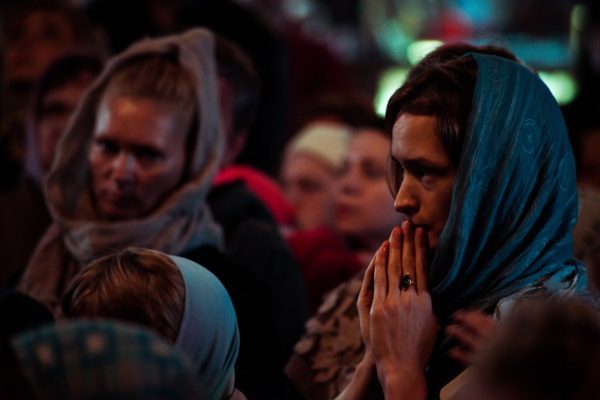In the hour in which we are tempted we must be patient and pray.
Elder Amphilochios
When it comes right down to it, we don’t like being patient because patience requires that we continue to suffer. We don’t like suffering. We want the suffering to end as soon as possible. In fact, much of the power of temptation is in that it seems to promise an end to our suffering–at a cost. But we are not only assailed by temptation when we are suffering.
The insidious way of the evil one is to use our experience, whatever it is, to separate us from Christ. Even in the Garden of Paradise, the evil one suggests to Eve that greater delights were to be had. A seed, a word of doubt is planted in her mind concerning the love and care of God: “God’s holding out on you. God has forbidden something because He doesn’t want you to have some good things.” These and similar thoughts the serpent whispers into Eve’s ears. Even in Paradise, even in a world with nothing but good, the evil one uses even the good, the desire for good, to deceive and separate the creature from the loving Creator.
And so either from the left or from the right, either with the promise of greater pleasure or of less pain, temptation comes to us. It comes to us as a shortcut. It comes to us with a lie, a lie that God does not really love us, a lie that “it” won’t hurt anyone, a lie that we’ll finally get what we want–we’ll get what God has been holding from us.
But just as Eve got what she thought she wanted–the knowledge of good and evil–we too get in one way or another what we want only to find out that it wasn’t really what we wanted at all, and that the hidden costs are excruciating. But not to worry. There is always another lie…
The way of the Cross is the remedy to temptation. The way of the Cross is the way of patience and humility: patience in suffering and humility in blessing. I heard Mother Victoria once say in response to a question that contained the phrase, why me: “Why not me?” If there is sickness in the world, why shouldn’t I be sick too? If there is tragedy in the world, why shouldn’t I be touched by tragedy too? If there is poverty in the world, why shouldn’t I be poor too? If there is confusion and frustration in the world, why shouldn’t I be confused and frustrated too? Am I better than everyone else? Does God love me more?
Asking ourselves the question,”why not me?” helps us find patience in suffering. “Why not me?” defuses many of the lies and untangles many of the mental webs of the evil one. This attitude helps us endure–knowing that we are not alone in the suffering common to all mankind. The “why not me?” attitude helps us entrust ourselves to God who really does “work all things for good,” even when it doesn’t feel very good at the moment. And “why not me?” also diminishes the importance of our suffering in our own eyes. It keeps our suffering from becoming all-consuming. It helps us look past the pain and to see more than the sorrow. It removes us and our troubles from the centre of our universe.
Asking “why not me?” also creates humility. When things are going our way, when the bills are paid and the kids are healthy; then, “why not me?” helps us hold everything loosely. It reminds us that nothing this side of grave is permanent. It gives us compassion. The suffering of my neighbor could have been mine, and indeed may yet be mine before the end. It makes us generous–giving to those who are in need knowing that we too may someday be in need. And this humility that comes from a “why not me?” attitude guards us from thinking we deserve more than we have, thus blunting the temptation of the Garden of Eden to deny God by reaching out to take what God has not given us.
Finally, and this can only be confirmed by experience, having embraced a “why not me?” attitude toward life, all of life–the good, the bad, the ups, the downs–becomes much more peaceful, meaningful and even enjoyable. Peaceful because I am not fretting, meaningful because I am not alone, and enjoyable because I can now see beyond myself. The lows are not nearly so low. The highs are just a different kind of Cross, a cross with a pillow perhaps; but still just a particular context in which to give your life away.
In the hour in which we are tempted we must be patient and pray. Temptation is a clever craftsman. He is able to make small things look large. Temptation disquiets, saddens, and creates external battles. He knows many arts. He brings man to doubt. For this reason we have many shipwrecks. When we are beset by temptations, that’s when the grace of God comes. When one undergoes temptation, he recognizes his weakness, is humbled and attracts the grace of God. Don’t let the winds of temptation affect you. They can’t do you any harm. [i.e. You can only harm yourself.]
Elder Amphilochios in Precious Vessels of the Holy Spirit: The Lives & Counsels of Contemporary Elders of Greece
You can follow us on Twitter, Facebook, Instagram, Telegram, or Parler

















